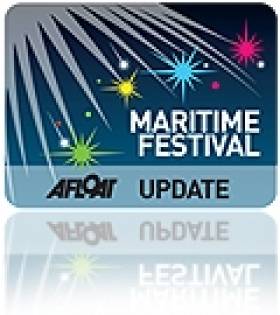Displaying items by tag: Replica tallship
‘Bounty’ Joins Belfast’s Titanic Maritime Festival
The US-flagged replica tallship H.M.S. Bounty arrived into Belfast Lough this morning for the Belfast Titanic Maritime Festival (24-26 June), writes Jehan Ashmore.
Measuring some 200 tonnes, the three masted-replica ship of the original H.M.A.V Bounty where the famous mutiny against Captain William Bligh took place in Tahiti in 1789, is to open to the public.
The replica was constructed in Nova Scotia of the original Hull-built vessel for the 1962 MGM film 'Mutiny on the Bounty' starring Hollywood screen legend Marlon Brando.
The Bounty was also used in the filming of Pirates of the Caribbean II and a Lone Wolf Production Group documentary on Blackbeard and has featured in several documentaries.
'Bounty' will be open to visitors (for information www.tallshipbounty.org) and is to be accompanied by the Jubilee Sailing Trust's Lord Nelson (www.jst.org.uk/).
The festival venue is at the Queen's Quay, Abercorn Basin and Arc, behind the Premier Inn Hotel at the Titanic Quarter.
As for the Titanic, tours of the old main offices of the H&W shipyard on the Queen's Road courtesy of the Titanic Quarter Ltd will be open to the public with displays relating to Titanic and Edwardian Fashion.
In addition Titanic Bus Tours lasting two hours which are free are available from the Belfast Welcome Centre, to contact Tel: 028 9024 6609.
For a complete listing of the festival events, dates and opening hours go to www.belfastcity.gov.uk/maritimefestival/index.asp
- Belfast
- Port of Belfast
- Lord Nelson
- Belfast Lough
- Titanic
- Jubilee Sailing Trust
- Titanic Quarter
- Belfast Harbour Commissioners
- Tahiti
- Harland & Wolff
- Belfast Lough News
- MGM
- Hollywood
- Maritime Festivals
- Mutiny on the Bounty
- Captain William Bligh
- Marlon Brando
- H.M.S. Bounty
- H.M.A.V. Bounty
- The Bounty
- MGM Film Studies
- Replica tallship
- Maritime Events
- SS Titanic
- H&W
- JST
- Holiday Inn
- Queen's Quay
- Abercorn Basin
- Titanic Quarter Ltd
- Belfast Welcome Centre
























































